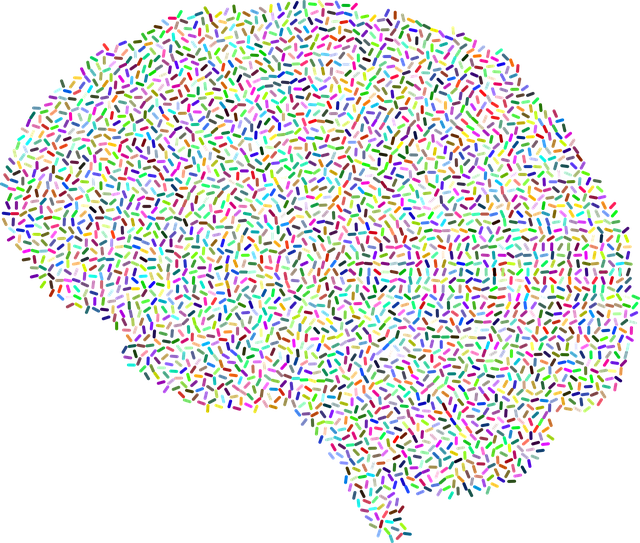Lafayette Psychosis Therapy offers a comprehensive approach to trauma support, addressing complex mental health implications arising from abuse, violence, or natural disasters, leading to conditions like anxiety, depression, and PTSD. Their evidence-based methods include tailored interventions, emotional healing, social skills training, stress management workshops, and conflict resolution techniques. Local mental health clinics and non-profits provide specialized services and safe spaces for processing experiences, while their Mental Wellness Podcast Series offers accessible recovery stories and discussions. Lafayette Psychosis Therapy's holistic model includes individual therapy, community support, and destigmatization efforts to empower clients with inner strength and effective coping mechanisms for emotional recovery.
“Trauma, a profound and lasting impact on an individual’s mental health, requires specialized support. This article explores comprehensive trauma support services, focusing on the critical role of Lafayette Psychosis Therapy in fostering healing. We delve into understanding trauma’s far-reaching effects and how access to resources can empower recovery.
From creating inclusive support systems to nurturing resilience, each section guides readers through a holistic approach to trauma care. Discover practical steps towards healing and learn how Lafayette Psychosis Therapy offers effective strategies for those navigating the complexities of traumatic experiences.”
- Understanding Trauma and Its Impact
- The Role of Lafayette Psychosis Therapy in Support
- Accessing Available Resources
- Creating an Inclusive and Effective Support System
- Nurturing Resilience and Healing from Trauma
Understanding Trauma and Its Impact

Trauma is a complex and profound experience that can have lasting effects on an individual’s mental health and overall well-being. It’s important to understand that trauma isn’t simply a one-time event; rather, it can be triggered by various experiences, including but not limited to abuse, violence, natural disasters, or military combat. The impact of trauma extends beyond the immediate moment, often leading to long-term challenges such as anxiety, depression, and post-traumatic stress disorder (PTSD). These conditions can significantly impair daily functioning and relationships.
In Lafayette, psychosis therapy serves as a crucial resource for individuals navigating trauma’s aftermath. Professional mental health services, including therapy and support groups, play a pivotal role in helping people process their traumatic experiences. Furthermore, organizations offering Mental Health Education Programs Design and Stress Management Workshops can empower individuals with coping strategies to manage trauma-related symptoms. Healthcare Provider Cultural Competency Training is also essential, ensuring that professionals are equipped to offer sensitive and effective care to those who have experienced trauma, regardless of their cultural background.
The Role of Lafayette Psychosis Therapy in Support

Lafayette Psychosis Therapy plays a pivotal role in providing comprehensive support for individuals dealing with trauma. Through tailored interventions and evidence-based practices, therapists offer a safe space for clients to process their experiences, develop coping mechanisms, and regain a sense of control over their lives. The therapy focuses on addressing the root causes of trauma, promoting emotional healing, and enhancing overall well-being.
One of the key aspects of Lafayette Psychosis Therapy is its emphasis on Social Skills Training, which equips individuals with the necessary tools to navigate interpersonal interactions effectively. Additionally, Stress Management Workshops Organization and Conflict Resolution Techniques are integrated into treatment plans to help clients manage stress, resolve conflicts, and foster healthier relationships. These holistic approaches ensure that individuals not only overcome their trauma but also build resilience and improve their overall quality of life.
Accessing Available Resources

Accessing available resources for trauma support is a crucial step towards healing and recovery. Individuals experiencing trauma often need specialized care, which can be found through various channels. In many communities, local mental health clinics and non-profit organizations offer Lafayette Psychosis Therapy services tailored to address post-traumatic stress disorder (PTSD) and other related conditions. These institutions provide a safe space for individuals to process their experiences and develop effective coping mechanisms.
Effective communication strategies play a significant role in accessing these resources. Mental health professionals often conduct awareness campaigns and Stress Management Workshops within communities to educate people about available support systems, including local support groups and therapy services. Additionally, initiatives focused on Mental Illness Stigma Reduction Efforts are instrumental in encouraging individuals to seek help without fear of judgment. By combining these communication strategies with accessible resources, communities can foster a supportive environment for trauma survivors.
Creating an Inclusive and Effective Support System

Creating an inclusive and effective support system for trauma victims is paramount in ensuring those who’ve experienced profound psychological wounds receive the care they deserve. Organizations like Lafayette Psychosis Therapy play a pivotal role in this process by offering specialized Trauma Support Services tailored to meet individual needs. These services go beyond traditional therapy, integrating various approaches such as group sessions, art therapy, and online resources to cater to diverse learning styles and preferences.
The Mental Wellness Podcast Series Production has also emerged as a powerful tool within this framework. By leveraging audio content, these podcasts provide accessible platforms for sharing recovery stories, offering practical stress management techniques, and promoting mental wellness discussions. This multi-faceted approach, combining professional therapy with innovative production methods, fosters an environment conducive to healing, where individuals feel seen, heard, and supported on their journey towards resilience and wholeness.
Nurturing Resilience and Healing from Trauma

Trauma can leave individuals feeling vulnerable and struggling to rebuild their lives. Nurturing resilience is a crucial step in helping people heal from deep-seated psychological wounds. Lafayette Psychosis Therapy offers specialized services designed to support individuals in developing inner strength and coping mechanisms. Through evidence-based therapeutic approaches, clients are guided to process their traumatic experiences safely and effectively, fostering a sense of control and empowerment.
In addition to individual therapy, Lafayette Psychosis Therapy promotes community healing by engaging in public awareness campaigns that destigmatize mental health issues and encourage access to support services. Risk management planning for mental health professionals is also emphasized to ensure practitioners are equipped with the tools necessary to support clients effectively while maintaining their own well-being. This holistic approach recognizes that true healing comes from a combination of professional guidance, personal growth, and community support.
Trauma support is a multifaceted process that requires understanding, specialized services like Lafayette Psychosis Therapy, and accessible resources. By fostering an inclusive environment and nurturing resilience, individuals can heal from trauma and build indelible strength. Remember that seeking help is a significant step towards recovery, and there are numerous resources available to navigate this journey effectively.














